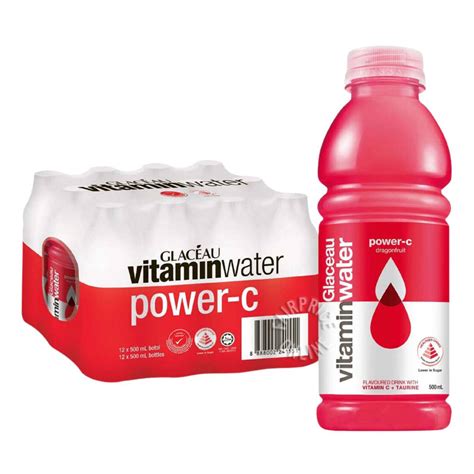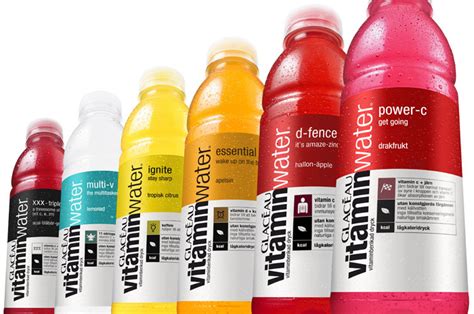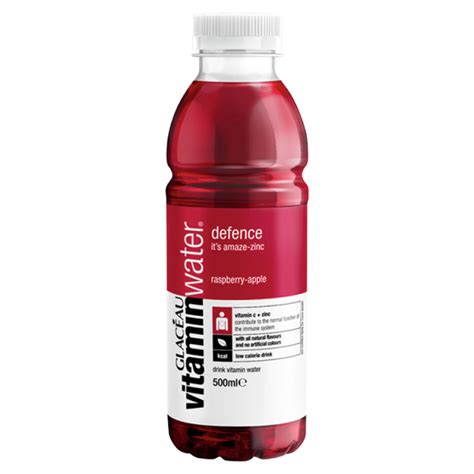Hydration is a fundamental aspect of healthy living, yet many of us underestimate its importance. Proper water intake not only supports vital bodily functions but also plays a crucial role in maintaining overall well-being. With varying recommendations on how much water we should drink daily, it can be confusing to determine what is optimal for our individual needs. This article delves into expert insights on daily hydration, exploring factors that influence water requirements, common myths surrounding hydration, and the significant benefits of adequate water intake. Whether you’re an athlete or just looking to improve your health, understanding hydration is essential for achieving your wellness goals.
Discover the intricacies of this topic with ujeruj.net
1. Introduction to the Importance of Hydration
Hydration is often overlooked in discussions about health and wellness, yet it is a cornerstone of our overall well-being. Water constitutes about 60% of the human body and is essential for numerous physiological functions, including digestion, circulation, temperature regulation, and nutrient absorption. Without sufficient hydration, our bodies struggle to perform these vital tasks, which can lead to fatigue, headaches, and decreased cognitive function.
Moreover, proper hydration is linked to a range of health benefits. It supports skin health, aids in weight management, and enhances physical performance. Many people experience improved mood and mental clarity when adequately hydrated, making it crucial for both physical and mental health.
As we navigate through busy lives, it’s easy to forget to drink enough water, particularly with the distractions of work, social commitments, and technology. Understanding the significance of hydration and recognizing the signs of dehydration can empower individuals to make informed choices about their daily water intake. This article will explore expert recommendations, debunk common myths, and provide practical tips to help you prioritize hydration and enhance your overall quality of life. By making hydration a priority, you can take significant steps towards achieving optimal health and well-being.

2. Overview of Recommended Daily Water Intake
The recommended daily water intake varies depending on several factors, including age, gender, and activity level. The general guideline suggests that adults should aim for approximately 8 to 10 cups (64 to 80 ounces) of water per day. This translates to about 2 to 3 liters, providing a solid foundation for optimal hydration.
For men, the Institute of Medicine recommends around 3.7 liters (about 13 cups) of total water intake daily, while for women, the recommendation is about 2.7 liters (approximately 9 cups). These totals encompass all fluids consumed, including water, beverages, and moisture in food.
However, individual needs can differ significantly. Factors such as physical activity, climate, and overall health can increase water requirements. For example, individuals engaging in intense exercise or those living in hot climates may need to drink more to compensate for fluid loss through sweat. Additionally, certain life stages, such as pregnancy and lactation, also demand increased hydration. Understanding these guidelines can help individuals tailor their water intake to meet their unique needs and promote better health.

3. Factors Influencing Water Requirements (e.g., age, activity level, climate)
Several factors influence individual water requirements, making hydration needs highly personalized. Age is a significant factor; children generally require less water than adults, while older adults may need to pay closer attention to their hydration due to decreased thirst sensation and potential health issues.
Activity level also plays a crucial role. Individuals who engage in regular exercise or intense physical activities lose more fluids through sweat and respiration, necessitating increased water intake to maintain optimal hydration. Athletes, in particular, may need to consume significantly more than the general recommendations to compensate for these losses.
Climate is another important consideration. Hot and humid weather can lead to increased sweating, requiring individuals to drink more water to avoid dehydration. Conversely, dry or high-altitude environments can also lead to fluid loss through respiration.
Overall health conditions, such as fever, vomiting, or diarrhea, can elevate water needs as well. By considering these factors, individuals can better assess their hydration needs and make informed choices to ensure they stay adequately hydrated throughout their daily lives.

4. Expert Opinion: What Health Professionals Recommend
Health professionals emphasize the importance of individualized hydration strategies, as one size does not fit all when it comes to water intake. Many experts recommend the widely accepted guideline of drinking eight 8-ounce glasses of water a day, known as the “8×8 rule.” However, they also stress that personal needs can vary significantly based on factors such as age, weight, and activity level.
Registered dietitians and nutritionists often advise individuals to listen to their bodies, noting that thirst is a reliable indicator of hydration needs. They suggest checking urine color; pale yellow indicates adequate hydration, while darker urine can signal dehydration.
Athletic trainers and sports nutritionists highlight the importance of pre- and post-exercise hydration, advising athletes to consume fluids before, during, and after physical activity to maintain performance and recovery.
Additionally, some health professionals recommend incorporating hydrating foods, such as fruits and vegetables, into daily diets to boost overall fluid intake. Ultimately, the consensus among experts is that staying adequately hydrated is crucial for optimal health, and individuals should strive to adjust their water intake based on their unique circumstances and lifestyles.
5. Common Myths and Misconceptions About Hydration
Health professionals emphasize the importance of individualized hydration strategies, as one size does not fit all when it comes to water intake. Many experts recommend the widely accepted guideline of drinking eight 8-ounce glasses of water a day, known as the “8×8 rule.” However, they also stress that personal needs can vary significantly based on factors such as age, weight, and activity level.
Registered dietitians and nutritionists often advise individuals to listen to their bodies, noting that thirst is a reliable indicator of hydration needs. They suggest checking urine color; pale yellow indicates adequate hydration, while darker urine can signal dehydration.
Athletic trainers and sports nutritionists highlight the importance of pre- and post-exercise hydration, advising athletes to consume fluids before, during, and after physical activity to maintain performance and recovery.
Additionally, some health professionals recommend incorporating hydrating foods, such as fruits and vegetables, into daily diets to boost overall fluid intake. Ultimately, the consensus among experts is that staying adequately hydrated is crucial for optimal health, and individuals should strive to adjust their water intake based on their unique circumstances and lifestyles.
6. Benefits of Proper Hydration on Overall Health
Health professionals emphasize the importance of individualized hydration strategies, as one size does not fit all when it comes to water intake. Many experts recommend the widely accepted guideline of drinking eight 8-ounce glasses of water a day, known as the “8×8 rule.” However, they also stress that personal needs can vary significantly based on factors such as age, weight, and activity level.
Registered dietitians and nutritionists often advise individuals to listen to their bodies, noting that thirst is a reliable indicator of hydration needs. They suggest checking urine color; pale yellow indicates adequate hydration, while darker urine can signal dehydration.
Athletic trainers and sports nutritionists highlight the importance of pre- and post-exercise hydration, advising athletes to consume fluids before, during, and after physical activity to maintain performance and recovery.
Additionally, some health professionals recommend incorporating hydrating foods, such as fruits and vegetables, into daily diets to boost overall fluid intake. Ultimately, the consensus among experts is that staying adequately hydrated is crucial for optimal health, and individuals should strive to adjust their water intake based on their unique circumstances and lifestyles.
7. Practical Tips for Increasing Daily Water Consumption
Increasing daily water consumption can be achieved through simple, practical strategies. First, keep a reusable water bottle handy throughout the day. Having water within reach serves as a constant reminder to drink more frequently. Set specific goals, such as drinking a certain number of bottles daily, to keep yourself accountable.
Incorporating water-rich foods into your diet is another effective approach. Fruits like watermelon, oranges, and strawberries, as well as vegetables such as cucumbers and lettuce, can significantly contribute to your overall hydration.
Establishing a routine can also help. For instance, drink a glass of water before each meal or snack, and sip water during breaks at work. Consider using apps or alarms to remind yourself to hydrate regularly.
Infusing water with fruits, herbs, or vegetables can enhance flavor and make drinking more enjoyable. Herbal teas and sparkling water are also excellent alternatives to increase fluid intake.
Lastly, be mindful of your hydration needs during physical activity or in hot weather, ensuring you drink extra fluids to compensate for losses. By integrating these tips into your daily life, you can easily boost your water consumption and improve your overall hydration.
8. The Role of Hydration in Athletic Performance
Hydration plays a critical role in athletic performance, as water is essential for maintaining energy levels, regulating body temperature, and supporting overall physiological functions. During exercise, the body loses fluids through sweat and respiration, which can lead to dehydration if not replenished adequately. Even a 2% loss in body weight due to fluid loss can impair physical performance, leading to fatigue, decreased endurance, and impaired coordination.
Athletes are particularly vulnerable to the effects of dehydration, which can hinder their ability to perform at peak levels. Proper hydration enhances cardiovascular efficiency, ensuring that oxygen and nutrients are delivered effectively to muscles during intense physical activity. Additionally, adequate fluid intake helps maintain optimal body temperature, reducing the risk of heat-related illnesses.
To maximize performance, athletes should develop a personalized hydration strategy. This includes drinking water before, during, and after exercise, with an emphasis on replenishing lost fluids. Sports drinks may be beneficial during prolonged or high-intensity activities, as they provide electrolytes and carbohydrates alongside hydration.
Ultimately, understanding the significance of hydration in athletic performance can help athletes optimize their training, improve recovery times, and enhance their overall performance, making it an essential component of any training regimen.
9. Challenges to Maintaining Optimal Hydration Levels
Hydration plays a critical role in athletic performance, as water is essential for maintaining energy levels, regulating body temperature, and supporting overall physiological functions. During exercise, the body loses fluids through sweat and respiration, which can lead to dehydration if not replenished adequately. Even a 2% loss in body weight due to fluid loss can impair physical performance, leading to fatigue, decreased endurance, and impaired coordination.
Athletes are particularly vulnerable to the effects of dehydration, which can hinder their ability to perform at peak levels. Proper hydration enhances cardiovascular efficiency, ensuring that oxygen and nutrients are delivered effectively to muscles during intense physical activity. Additionally, adequate fluid intake helps maintain optimal body temperature, reducing the risk of heat-related illnesses.
To maximize performance, athletes should develop a personalized hydration strategy. This includes drinking water before, during, and after exercise, with an emphasis on replenishing lost fluids. Sports drinks may be beneficial during prolonged or high-intensity activities, as they provide electrolytes and carbohydrates alongside hydration.
Ultimately, understanding the significance of hydration in athletic performance can help athletes optimize their training, improve recovery times, and enhance their overall performance, making it an essential component of any training regimen.
10. Special Considerations for Different Age Groups (children, elderly)
Different age groups have unique hydration needs that must be considered to ensure optimal health. For children, proper hydration is vital for growth, cognitive function, and overall development. Kids are often less aware of their thirst and may forget to drink water, especially during play. Parents should encourage regular water intake throughout the day, particularly during physical activities or in hot weather. Incorporating hydrating foods, such as fruits and vegetables, can also support their hydration needs.
On the other hand, older adults face specific challenges related to hydration. As people age, their sense of thirst diminishes, making them more susceptible to dehydration. Additionally, health conditions and medications may affect fluid balance, further complicating hydration needs. It’s crucial for older adults to be proactive about their water intake, monitoring their hydration status regularly. Caregivers and family members should assist by offering fluids frequently and providing accessible water sources.
Both age groups can benefit from education about the importance of hydration and strategies to maintain adequate fluid levels. By recognizing these special considerations, caregivers and individuals can help ensure that children and older adults stay hydrated, supporting their health and well-being throughout their lives.
11. Conclusion: Key Takeaways on Achieving Optimal Hydration
Hydration needs vary significantly across different age groups, particularly for children and the elderly, who require special attention to their fluid intake.
Children are often less aware of their hydration needs and may not drink enough water throughout the day. Their bodies are more susceptible to dehydration due to higher metabolic rates and greater surface area relative to body weight. During physical activities or hot weather, children can lose fluids quickly, making it essential for parents and caregivers to encourage regular water consumption. Incorporating hydrating foods, such as fruits and vegetables, into their meals can also help meet hydration needs.
For the elderly, hydration is equally critical, but they face unique challenges. Aging can diminish the body’s thirst response, leading to a reduced sensation of thirst. Additionally, older adults may have health conditions or take medications that increase fluid loss. This can put them at a higher risk for dehydration, which can lead to serious health complications, including kidney issues and cognitive decline.
To address these concerns, it’s vital for caregivers and family members to ensure that older adults have easy access to fluids and to encourage regular drinking habits. Monitoring urine color can also help assess hydration levels, ensuring that both children and the elderly maintain optimal hydration for their health and well-being.
ujeruj.net

